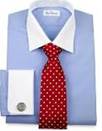Sample Professional Image Guidelines
for Men
Shirts — The centerpiece of formal male attire
- The shirt sleeve cuff should be loose and extend to the end of your wrist.
- If your shirt has a button on the sleeve above the cuff, button it.
- Having shirts professionally laundered is a sound investment.
Collars — Most formal to least formal
- Contrast collars
- Tab collars — should be worn with a tie.
- Straight collars — ideal for interviews
- Spread collars — ideal for interviews
- Button-down collars
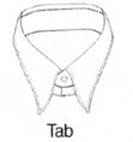
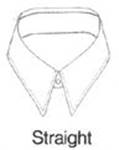
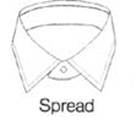
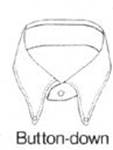
Ties — Add signature style
- The smaller the pattern and the darker the tie, the more authoritative the look.
- The point of your tie should lay over your belt buckle.
Suits — dark neutrals are the most traditional and versatile
- When buttoning the jacket of a three button suit, fasten the top two buttons.
- A double breasted suit should always be buttoned when standing.
Trousers — ground your look for business
- Fit is everything. Too big or too tight throws off the balance of your overall image.
- Pant hems should clear the shoe heel, but rest on the front of the shoe, creating a slight break.
Socks — it is never a good idea to go sockless in a business setting
- Dark socks such as navy, black or brown are best.
- Over-the-calf socks are much better than shorter styles.
Shoes — putting your best foot forward makes sense
- Best shoes for business are wing-tips, oxfords and dress loafers. Wear wing-tips with traditional suits — oxfords and dress loafers with more casual looks.
- For many men, shoes are an afterthought, but cheap or uncared for shoes can ruin an otherwise polished appearance.
Wing-tips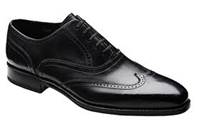
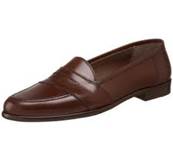 Loafers
Loafers
Outerwear
- An all-weather (i.e.trench) coat and a well-maintained briefcase/tote are essential finishing pieces for most business outfits. Select a good quality trench coat with a zip-out liner so you can wear it year ‘round. You are often wearing a coat when you meet someone for the first time. Make sure this is one of the best items in your wardrobe.
